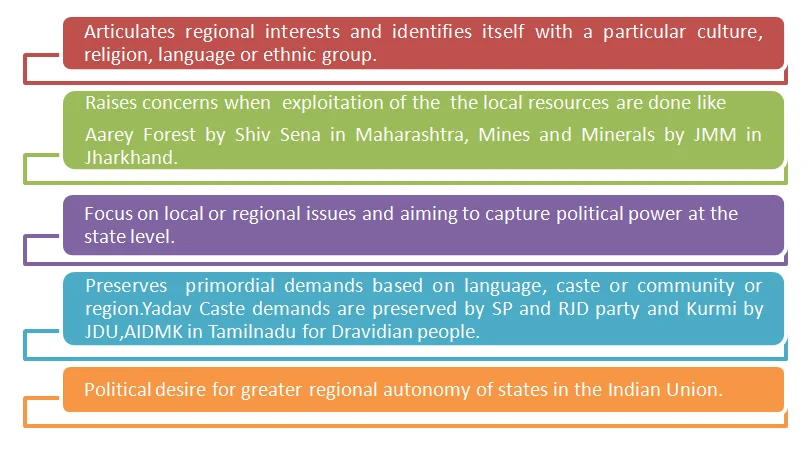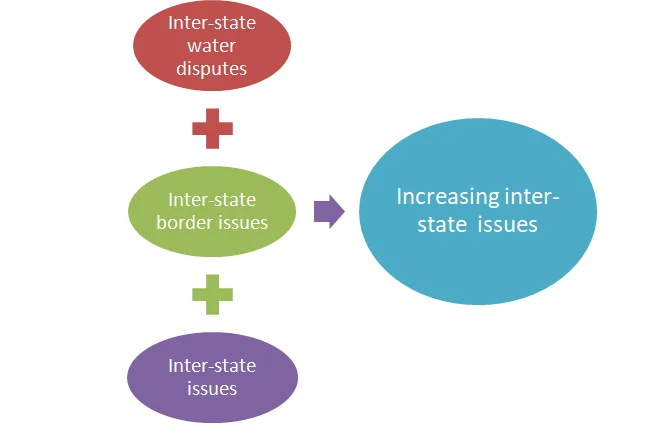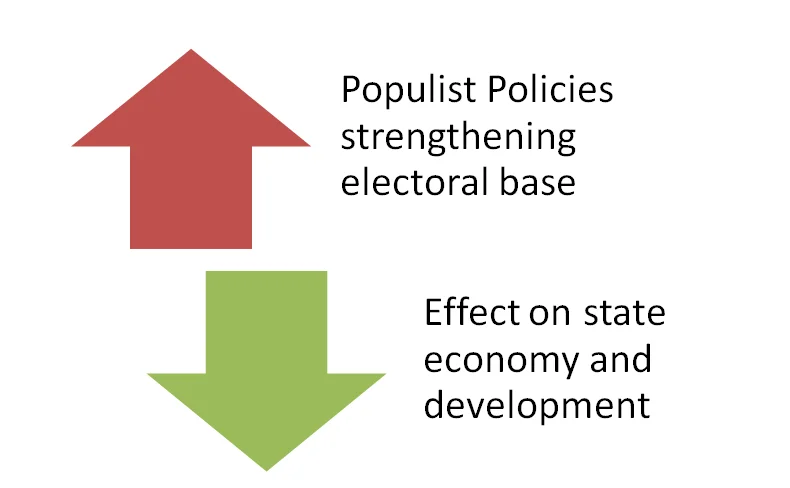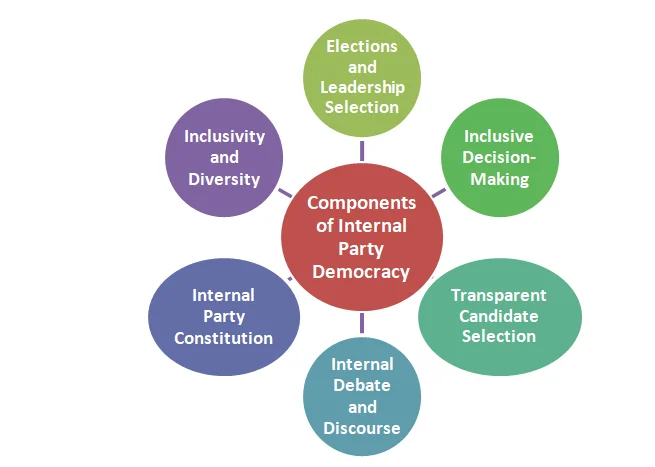The Indian party system has evolved significantly, especially with the rise of regional parties over the past four decades. These parties have diversified the political landscape, reflecting regional aspirations and influencing national politics. However, challenges such as factionalism, lack of internal democracy, and issues of accountability persist. Understanding these dynamics is crucial for fostering a more inclusive and effective political environment.
The Dynamics of the Indian Party System
Rise of Regional Parties
- Expansion of Regional Parties in India: The number and strength of regional parties have expanded over the last four decades, contributing to a more diverse political landscape in the Parliament of India.
- Emergence of Regional Aspirations: Regional parties have emerged to fulfill their specific regional aspirations, reflecting the unique needs and concerns of various states and communities.
- National Parties and the Challenge of Majority: National parties have struggled to secure a majority in the Lok Sabha, necessitating alliances with regional parties to form stable governments.
- Role of Regional Parties in Coalition Politics: Since 1989, regional parties have played a crucial role in coalition politics, influencing governance and policy decisions at the national level.
- Federal Character of the Party System: The responsiveness of the Centre to the issues and aspirations of regional parties highlights the federal character of India’s party system, showcasing the importance of regional representation in governance.
Enroll now for UPSC Online Course
-
- Reasons for the Emergence of Regional Parties in India
- Cultural and ethnic pluralism of Indian society: Regional parties represent the interests and aspirations of people from specific linguistic and cultural backgrounds.
- Asom Gana Parishad and Naga People Front of North Eastern Region
- Shiromani Akali Dal of Punjab.
- Economic disparities and regional imbalances in the development: Jharkhand Mukti Morcha Party led the agitation for the separation of Jharkhand from Bihar due to regional imbalances and economic disparities.
- Cultural and ethnic pluralism of Indian society: Regional parties represent the interests and aspirations of people from specific linguistic and cultural backgrounds.
- Reasons for the Emergence of Regional Parties in India
- Failure of national politics to meet the regional aspirations: Rise of Communist Party of India in Naxalbari area in West Bengal after failure of implementation of the developmental policies.
- Charismatic personality of the regional leaders: Shiv Sena party was founded by Bala Saheb Thackeray in Maharashtra.
- Factional fights within the larger parties: Janata Dal split into various factions like RJD ,JDU, Samajwadi Party,etc.
- Role of caste and religion in the political process: Samajwadi Party(SP) for Yadavs, Bahujan Samaj Party(BSP) for Dalits in U.P.
-
-
- AIMIM has played a significant role in regional politics in Hyderabad region of Telangana.
- Reorganisation of states on the basis of language.
- Alienation and discontentment among the tribal groups.
- Desire of certain sections or areas to maintain separate identity due to historical factors.
-
- Self-interest of the deposed Maharajas and dispossessed Zamindars.
Features of Regional Party
- Following are a few features of a regional political party-

Role of Regional Parties
The following points highlight the role played by the regional parties in Indian politics:
- Impact on Centre-State Relations: Regional parties have significantly influenced the nature and course of centre-state relations, advocating for greater autonomy for provinces.
- Improved Governance at the Regional Level: The presence of regional parties has contributed to better governance and stability in regional governments.
- Expanded Electoral Choices: Regional parties have widened the choices available to voters during elections, enhancing democratic participation.
- Increased Political Consciousness: They have heightened political consciousness among the populace, drawing attention to regional issues and concerns.
- Challenge to the One-Party System: Regional parties have challenged the one-party dominance in India, particularly leading to a decline in the Congress party’s influence.
- Enhanced Political Competition: The emergence of regional parties has made politics more competitive, significantly increasing grassroots participation in the political process.
- Pressure on Dominant Parties: Regional parties have compelled dominant national parties to adopt a more reasonable approach to conflict resolution.
- Partisan Role of Governors Exposed: They have highlighted the partisan role of Governors in the appointment and dismissal of Chief Ministers in various states.
- Role in National Politics: Regional parties have assumed an important role in national politics, especially in the context of coalition governance.
- Participation in Coalition Governments: They have actively participated in coalition governments formed at the Centre, sharing power with national parties.
Limitations of Regional Parties
- Hurdles to National integration: Regional parties have encouraged regionalism, casteism, communalism and tribalism.
- Regionalism and tribalism: The Jharkhand Mukti Morcha party demanded a separate state for its tribal culture recognition.
- Casteism: RJD and Samajwadi Party for Yadav caste in Bihar and U.P.
- Narrow Approach for Resolution of National Issues: Regional Parties have neglected the implications due to their narrow approach to the resolution of national issues.
- Teesta Water Issue-West Bengal.
- Katchatheevu Island Issue-Tamil Nadu.

- Inter-state and Intra-state issues: They are responsible for impeding the resolution of inter-state water disputes, inter-state border disputes and other inter- and intra-state issues.

- Effect on State Economy and Development: They have focused more towards populist schemes which will result in expansion of their electoral base.

-
- Promotion of Self-interest: They have indulged in corruption, nepotism, favouritism, and other forms of misutilisation of power to promote their self-interest.
- Other Factors
- Pressure on Central Leadership: Regional parties are often seen as forcing the central leadership to yield to their unrealistic and unreasonable demands.
- Inclusion of Regional Issues in Policy-Making
- They have successfully brought regional factors and issues into the decision-making and policy-making processes of the coalition government at the Centre.
INTERNAL PARTY DEMOCRACY
About Internal Party Democracy
- Principles and Practices: Internal party democracy is the extent to which a political party adheres to democratic principles in its own internal organization and decision-making processes.
- Key Elements of Internal Party Democracy: It encompasses elements such as member participation, transparency, accountability, and freedom of expression.

Need for Internal Party Democracy
| Provides Equal Representation To Contest Elections |
|
| Transparency |
|
| Accountability |
|
| Criminalization of Politics |
|
Reasons for Lack of Intra-Party Democracy
| Kinship Culture |
|
| Role of Personality cult |
|
| Absence of laws related to democratic regulation |
|
| Centralised Structure of Political Parties |
|
| Internal Elections are Subverted |
|
Recommendations
- Reinterpretation of old laws: The existing laws should be reinterpreted, at the same time the Election Commission of India should take some bold moves like
- The parties should inform about their office bearers and addresses.
- They should submit the documents about the incurred expenditures not only during the election but also during other periods.
- Regular elections should be organized by political parties.
- Powers of ECI to be strengthened: The ECI shall be competent to inquire into allegations of non-compliance with any of the provisions requiring elections.
- ECI should have the penal power to deregister a party until free and fair elections in the party are conducted.
- Elections to be held at every level: It should be the duty of the political party to take appropriate steps to conduct elections at all levels i.e., national and State levels.
Enroll now for UPSC Online Course
| Must Read | |
| Current Affairs | Editorial Analysis |
| Upsc Notes | Upsc Blogs |
| NCERT Notes | Free Main Answer Writing |
Conclusion
India’s multi-party system showcases a vibrant political discourse that mirrors its diverse culture and ideologies. While regional parties play a vital role in representation, the need for stronger internal party democracy remains critical.
- Addressing these challenges will help enhance governance and ensure that all voices contribute to the nation’s development.
- The Indian political landscape continues to adapt, reflecting the aspirations of its citizens.
Sign up for the PWOnlyIAS Online Course by Physics Wallah and start your journey to IAS success today!
| Related Articles | |
| Indian Parliament: Structure, Functions and Significance | Freedom of Speech and Expression under Article 19 |
| GOVERNANCE | Economic Development |

 GS Foundation
GS Foundation Optional Course
Optional Course Combo Courses
Combo Courses Degree Program
Degree Program









